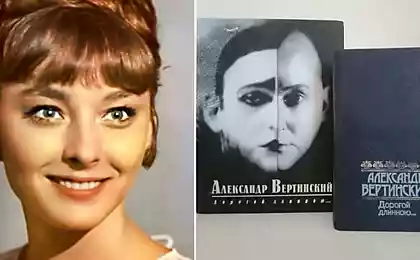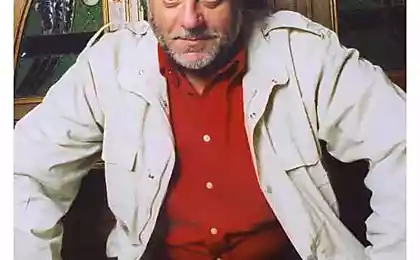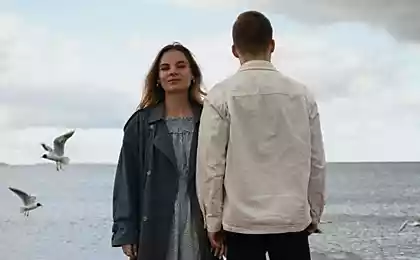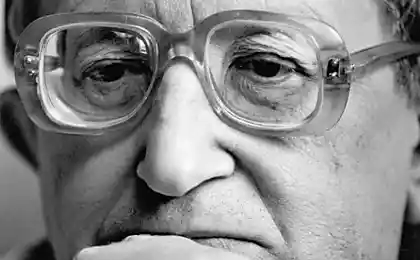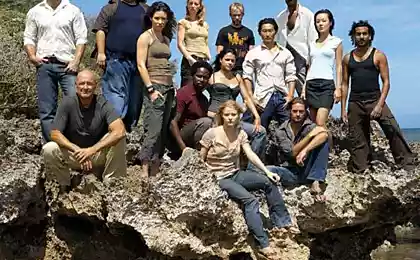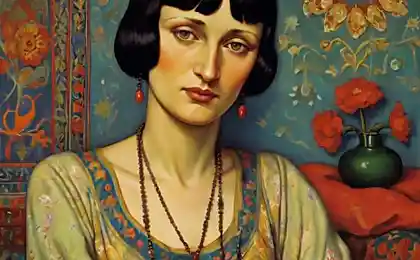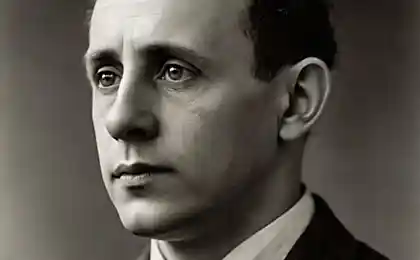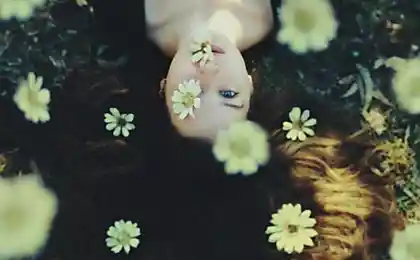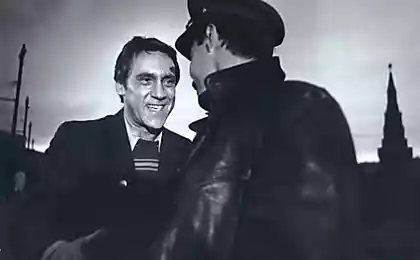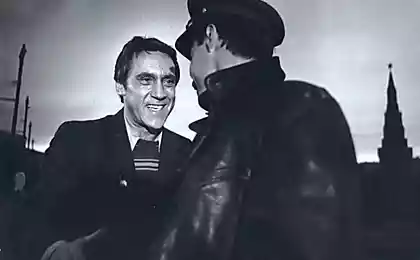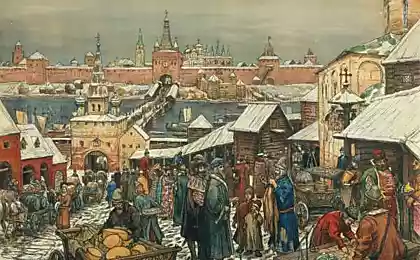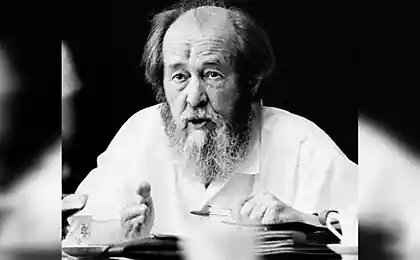217
What you should know about Alexander Vertinsky
“I remember having a French friend. The man is rather not stupid, young, rich and cheerful. We became friends with him because he loved everything Russian.
Gaston," I asked him once, "you love everything Russian. Why don't you marry a Russian?

He looked me in the eye. Then he smiled.
- You see, my dear friend," he began thoughtfully, "in order to marry a Russian, one must first buy all her pawnshop receipts. And if she doesn't have them, then her friends. One!
The whole family was expelled from Soviet Russia. Two! Then buy her husband a taxi or give her twenty thousand. Three! Then pay for the right to teach her son in Belgrade, because he has not been paid for for three years. Four!
Then put the money in her name in the bank. Five! Then buy her an apartment. Six. The car. Seven! Fur. Eight. Jewels. Nine! And the driver must take a Russian, because he is a former prince. And so cute. The Bolsheviks took everything from him except his honor.
Then she will say, I don’t love you yet. But I'll get used to you over the years!
And now, Gaston went on inspiringly, when she finally got used to you, you find her... with her chauffeur!
It turns out that they have long loved each other, and, of course, you are zero to her. You are a foreigner, an “alien.” And also, hum, as they say. He is still a “former prince.” And dances better than you. And taller than you.
Gaston laughed:
- Well, you know the rest. Scandal. Divorce. At the trial, she will tell you, “You owned my body, but you didn’t own my soul.” But your driver had both. You know, it’s hard, my friend!
Alexander Vertinsky. "A quarter of a century without a homeland."
Alexander Vertinsky April 2, 2018 marked the 129th anniversary of the birth of Alexander Nikolaevich Vertinsky, a singer whom Chaliapin called “the great storyteller of the Russian land”.
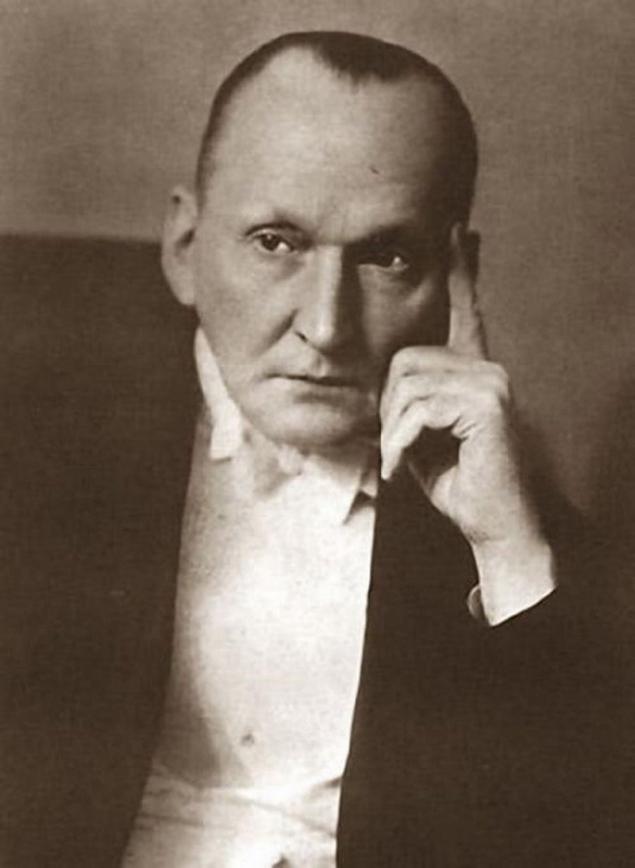
"Site" made a selection of stories and interesting facts from the life of this outstanding entertainer, film actor, composer and poet.
Vertinsky's songs can cause sincere tears or a stingy grin, but you can not find indifferent to the work of this person.
Fate treated Alexander Nikolaevich quite harshly (Vertinsky’s biography was far from cloudless), but the singer never gave up and continued to please fans with his work.
Childhood and youth Alexander Vertinsky was born in Kiev on March 19, 1889. At the age of five, the boy was an orphan. After the death of his parents, little Alexander and his older sister were taken to raise their mother’s sister.
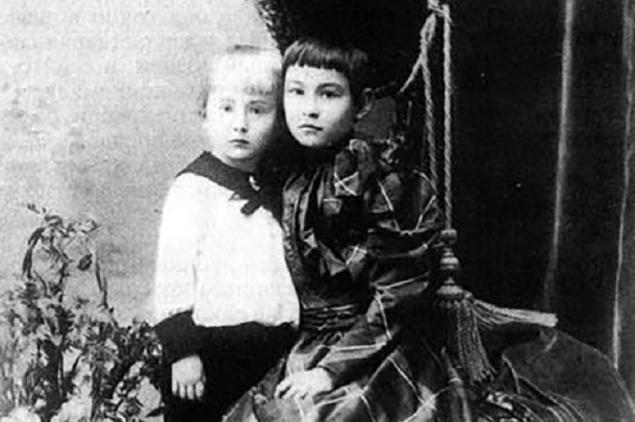
Brother and sister were separated, and soon Alexander was shocked by the news of the death of Hope. It was a lie invented by Vertinsky’s aunts to prevent him from communicating with his sister. That hope is alive, Alexander learns years later.
Little Alexander studied at the Alexandrian Imperial Gymnasium, but soon he was expelled for inappropriate behavior - the fact is that the boy began to steal. His aunt kicked him out of the house, and to survive, Vertinsky had to work as a salesman, and a typographic proofreader, and even a loader.
It seemed that fate did not bode well, but everything changed when Alexander met Sophia Zelinskaya, a longtime friend of his mother.
Sofia Nikolaevna was going to have the color of the Kiev intelligentsia. In her house were Nikolai Berdyaev, Mikhail Kuzmin, Mark Chagall, Nathan Altman. Under the influence of such an intellectual environment, Alexander began to engage in journalism and literature.
The newspaper “Kyiv week” publishes his first stories – “Portrait”, “My bride”, “Papyros “Spring”. A novice journalist writes theatrical reviews of the performances of celebrities - Chaliapin, Vyaltseva, Karinskaya.
In 1913, having accumulated 25 rubles, Vertinsky decided to leave Kiev for Moscow to become an artist. There his youthful dream comes true - since 1912 he began acting in films. At the same time, the young man drew the attention of Maria Alexandrovna Artsybusheva, the hostess of the Miniature Theatre.
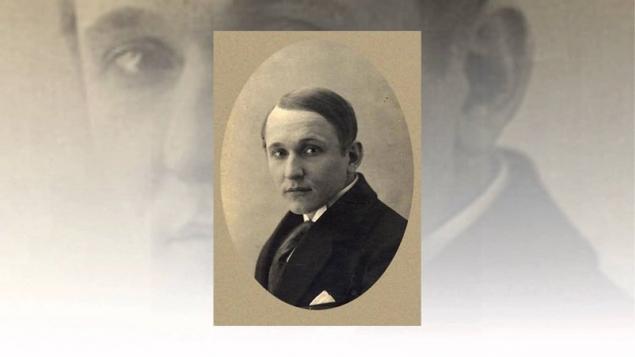
After agreeing to work in her theater, Vertinsky made his debut with the number “Tango”. Standing at the scene, he sang an ironic song commenting on the dance of the ballet couple. The number was a success, and the first fee of the artist was borscht and cutlets.
In 1913, Vertinsky tried to enter the Art Theatre. His last exam was taken by Konstantin Stanislavsky. The examiner did not like that Vertinsky badly pronounces the letter "R". Due to the natural nature of the study had to be forgotten.

At the end of 1914, Vertinsky went as a volunteer to the front - he got a job as an orderly on the sanitary train of the All-Russian Union of Cities, which ran between the front line and the capital. “When I finished my service on the train, I had thirty-five thousand dressings on my account!” – recalled later Alexander Nikolaevich.
There he served until the spring of 1915, and after a slight wound returned to Moscow. When he made his debut as a singer in the same year, he was already a famous film artist. (Before emigrating in 1919, Vertinsky appeared in 18 films based on his songs.)
After returning to the capital, Vertinsky continued to act in films and play in the Artsybusheva Theater. Then came the legendary image of Piero.
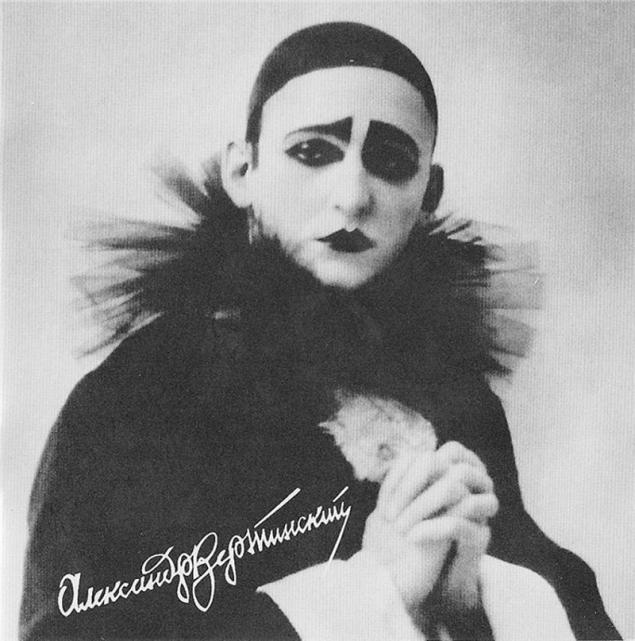
Miniatures, “Pierrot’s Songs”, romances “I laugh at myself today”, “Crystal Panikhida”, “Cocainetka” gave Alexander Nikolaevich a huge number of fans. Even harsh critics have consistently praised his performances.
about:blank
The reason for this popularity is the sincerity of the author. Vertinsky was not afraid to talk and sing about what bothered everyone. Questions of life and death, unrequited love, the spiritual and cultural crisis of society - these problems are reflected in Vertinsky's songs.

Alexander Nikolaevich was distinguished by his own style, characteristic grafting and, of course, texts that invariably take heart. The image of the suffering Piero gave rise to a lot of followers and parodists, but no one came close to the skill of Vertinsky.
After the revolution of 1917, Alexander Vertinsky emigrated to Constantinople, and sailed on the same ship as the famous General Wrangel.
More than twenty years Alexander Nikolaevich Vertinsky spent in exile. The peak of his fame came during his life abroad. Two years he lived in Turkey, then there were Romania, Bessarabia, Poland, Berlin, France.
about:blank
He lived in Europe until 1934, when he moved to Shanghai, where he lived for nine years. A citizen of the world, who lived in many cities, said only one thing: “Kiev is a tender homeland, which sounded to me in a dream.”
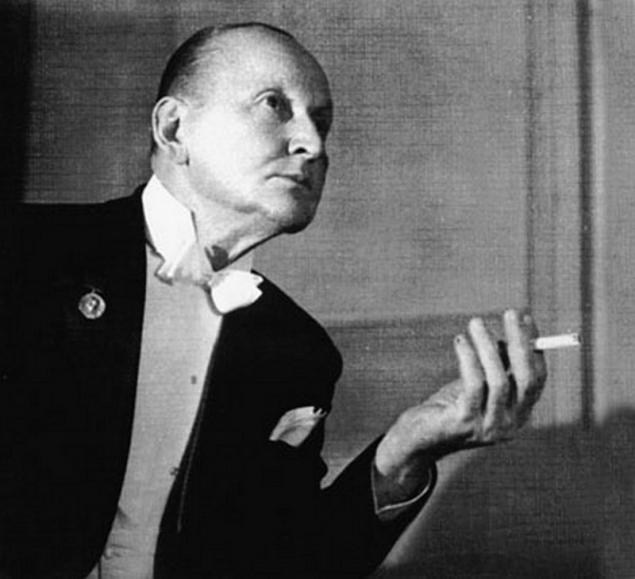
In May 1942, Vertinsky married Lydia Tsirgvavava, the 19-year-old daughter of a KVZD employee. She was 34 years younger than her husband, and Vertinsky brought her from Shanghai, struck by the appearance of the Georgian princess.

Lydia Vertinskaya She became one of the most beautiful women of Soviet cinema. She played in only five films, but these roles brought her fame and audience love. Most remembered are her bird Phoenix from Sadko and Anidag from Kingdom of Curve Mirrors.
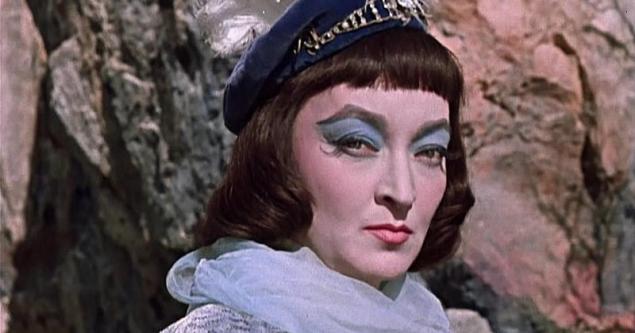
In 1943, Lydia gave Vertinsky a daughter, Marianne, and then, a year later, a second daughter, who was named Anastasia. Both girls inherited the talent and artistry of their parents, becoming famous actresses.
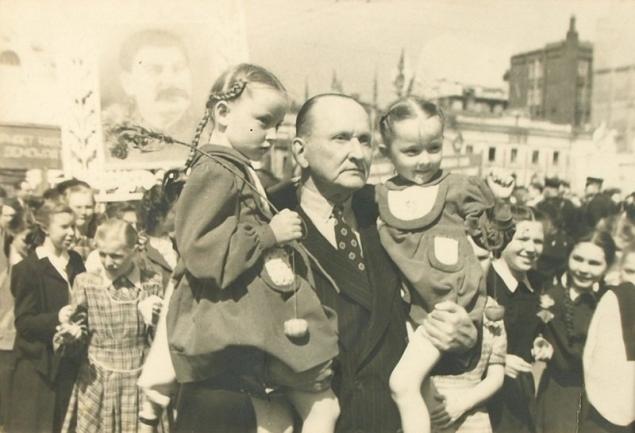
Anastasia Vertinskaya made her debut in the films “Scarlet Sails” and “Amphibian Man”. Marianne in Leap Year and Princess Turandot.

All the years of emigration, Vertinsky sought to return to the USSR. Finally, in 1943, the Vertinsky family with their four-month-old daughter Mariana returned to Moscow.
Vertinsky lived at home for another 14 years, but it was a strange life. He was not persecuted, but he was treated as a museum exhibit, archaeological value and was not allowed into reality.
No more than thirty of Vertinsky’s hundred songs were allowed to be performed in the USSR, every concert was attended by a censor, Vertinsky was not invited to the radio, records were almost not published, there were no reviews in the newspapers.
But Alexander Nikolaevich continued to create new songs: “Daughters”, “In front of the Motherland”, “Dear Missing”, “In Memory of the Actress”, “The Last Glass”...
about:blank
Vertinsky gave his last concert on the day of his death. On the evening of May 21, 1957, the actor became ill. A few hours later, Alexander Nikolaevich died. The tomb of Vertinsky is located in Moscow at the Novodevichy cemetery.
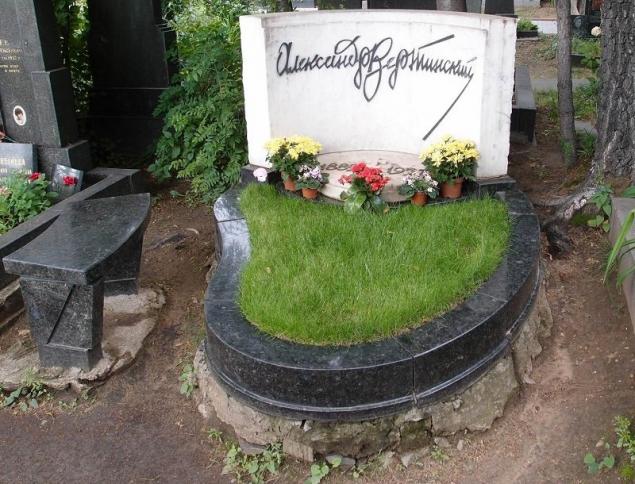
Songs of Vertinsky They greatly influenced the work of many of his contemporaries. He became the forerunner of everything that we had in the last 50 years - Okudzhava, Vysotsky, and from them the thread stretches to Grebenshchikov, Naumenko, Bashlachev.
In a period of impersonal time, he held in his hands the bare wires of two aestheticians - the 20s and 60s - and held them personally until the tradition of urban romance continued Okudzhava.
The smoldering fire of “personal treatment,” which had once been inflated by himself, he also preserved and returned, brought this seedling to his homeland, and he finally gave stormy shoots.
Continuing the conversation about the difficult fates of our compatriots, we invite you to familiarize yourself with the material about the difficult life path of Maria Rostislavovna Kapnist. Few people know that the appearance of this talented actress is a visual result of 15 years of hard labor.
“100 years is an unseemly lot, but I still want to live ...” – said the famous singer Isabella Yuryeva. She was a symbol of the era, charmed men with her beauty, and conquered millions of hearts with her voice. We will tell you about the biography of this charming woman.
Gaston," I asked him once, "you love everything Russian. Why don't you marry a Russian?

He looked me in the eye. Then he smiled.
- You see, my dear friend," he began thoughtfully, "in order to marry a Russian, one must first buy all her pawnshop receipts. And if she doesn't have them, then her friends. One!
The whole family was expelled from Soviet Russia. Two! Then buy her husband a taxi or give her twenty thousand. Three! Then pay for the right to teach her son in Belgrade, because he has not been paid for for three years. Four!
Then put the money in her name in the bank. Five! Then buy her an apartment. Six. The car. Seven! Fur. Eight. Jewels. Nine! And the driver must take a Russian, because he is a former prince. And so cute. The Bolsheviks took everything from him except his honor.
Then she will say, I don’t love you yet. But I'll get used to you over the years!
And now, Gaston went on inspiringly, when she finally got used to you, you find her... with her chauffeur!
It turns out that they have long loved each other, and, of course, you are zero to her. You are a foreigner, an “alien.” And also, hum, as they say. He is still a “former prince.” And dances better than you. And taller than you.
Gaston laughed:
- Well, you know the rest. Scandal. Divorce. At the trial, she will tell you, “You owned my body, but you didn’t own my soul.” But your driver had both. You know, it’s hard, my friend!
Alexander Vertinsky. "A quarter of a century without a homeland."
Alexander Vertinsky April 2, 2018 marked the 129th anniversary of the birth of Alexander Nikolaevich Vertinsky, a singer whom Chaliapin called “the great storyteller of the Russian land”.

"Site" made a selection of stories and interesting facts from the life of this outstanding entertainer, film actor, composer and poet.
Vertinsky's songs can cause sincere tears or a stingy grin, but you can not find indifferent to the work of this person.
Fate treated Alexander Nikolaevich quite harshly (Vertinsky’s biography was far from cloudless), but the singer never gave up and continued to please fans with his work.
Childhood and youth Alexander Vertinsky was born in Kiev on March 19, 1889. At the age of five, the boy was an orphan. After the death of his parents, little Alexander and his older sister were taken to raise their mother’s sister.

Brother and sister were separated, and soon Alexander was shocked by the news of the death of Hope. It was a lie invented by Vertinsky’s aunts to prevent him from communicating with his sister. That hope is alive, Alexander learns years later.
Little Alexander studied at the Alexandrian Imperial Gymnasium, but soon he was expelled for inappropriate behavior - the fact is that the boy began to steal. His aunt kicked him out of the house, and to survive, Vertinsky had to work as a salesman, and a typographic proofreader, and even a loader.
It seemed that fate did not bode well, but everything changed when Alexander met Sophia Zelinskaya, a longtime friend of his mother.
Sofia Nikolaevna was going to have the color of the Kiev intelligentsia. In her house were Nikolai Berdyaev, Mikhail Kuzmin, Mark Chagall, Nathan Altman. Under the influence of such an intellectual environment, Alexander began to engage in journalism and literature.
The newspaper “Kyiv week” publishes his first stories – “Portrait”, “My bride”, “Papyros “Spring”. A novice journalist writes theatrical reviews of the performances of celebrities - Chaliapin, Vyaltseva, Karinskaya.
In 1913, having accumulated 25 rubles, Vertinsky decided to leave Kiev for Moscow to become an artist. There his youthful dream comes true - since 1912 he began acting in films. At the same time, the young man drew the attention of Maria Alexandrovna Artsybusheva, the hostess of the Miniature Theatre.

After agreeing to work in her theater, Vertinsky made his debut with the number “Tango”. Standing at the scene, he sang an ironic song commenting on the dance of the ballet couple. The number was a success, and the first fee of the artist was borscht and cutlets.
In 1913, Vertinsky tried to enter the Art Theatre. His last exam was taken by Konstantin Stanislavsky. The examiner did not like that Vertinsky badly pronounces the letter "R". Due to the natural nature of the study had to be forgotten.

At the end of 1914, Vertinsky went as a volunteer to the front - he got a job as an orderly on the sanitary train of the All-Russian Union of Cities, which ran between the front line and the capital. “When I finished my service on the train, I had thirty-five thousand dressings on my account!” – recalled later Alexander Nikolaevich.
There he served until the spring of 1915, and after a slight wound returned to Moscow. When he made his debut as a singer in the same year, he was already a famous film artist. (Before emigrating in 1919, Vertinsky appeared in 18 films based on his songs.)
After returning to the capital, Vertinsky continued to act in films and play in the Artsybusheva Theater. Then came the legendary image of Piero.

Miniatures, “Pierrot’s Songs”, romances “I laugh at myself today”, “Crystal Panikhida”, “Cocainetka” gave Alexander Nikolaevich a huge number of fans. Even harsh critics have consistently praised his performances.
about:blank
The reason for this popularity is the sincerity of the author. Vertinsky was not afraid to talk and sing about what bothered everyone. Questions of life and death, unrequited love, the spiritual and cultural crisis of society - these problems are reflected in Vertinsky's songs.

Alexander Nikolaevich was distinguished by his own style, characteristic grafting and, of course, texts that invariably take heart. The image of the suffering Piero gave rise to a lot of followers and parodists, but no one came close to the skill of Vertinsky.
After the revolution of 1917, Alexander Vertinsky emigrated to Constantinople, and sailed on the same ship as the famous General Wrangel.
More than twenty years Alexander Nikolaevich Vertinsky spent in exile. The peak of his fame came during his life abroad. Two years he lived in Turkey, then there were Romania, Bessarabia, Poland, Berlin, France.
about:blank
He lived in Europe until 1934, when he moved to Shanghai, where he lived for nine years. A citizen of the world, who lived in many cities, said only one thing: “Kiev is a tender homeland, which sounded to me in a dream.”

In May 1942, Vertinsky married Lydia Tsirgvavava, the 19-year-old daughter of a KVZD employee. She was 34 years younger than her husband, and Vertinsky brought her from Shanghai, struck by the appearance of the Georgian princess.

Lydia Vertinskaya She became one of the most beautiful women of Soviet cinema. She played in only five films, but these roles brought her fame and audience love. Most remembered are her bird Phoenix from Sadko and Anidag from Kingdom of Curve Mirrors.

In 1943, Lydia gave Vertinsky a daughter, Marianne, and then, a year later, a second daughter, who was named Anastasia. Both girls inherited the talent and artistry of their parents, becoming famous actresses.

Anastasia Vertinskaya made her debut in the films “Scarlet Sails” and “Amphibian Man”. Marianne in Leap Year and Princess Turandot.

All the years of emigration, Vertinsky sought to return to the USSR. Finally, in 1943, the Vertinsky family with their four-month-old daughter Mariana returned to Moscow.
Vertinsky lived at home for another 14 years, but it was a strange life. He was not persecuted, but he was treated as a museum exhibit, archaeological value and was not allowed into reality.
No more than thirty of Vertinsky’s hundred songs were allowed to be performed in the USSR, every concert was attended by a censor, Vertinsky was not invited to the radio, records were almost not published, there were no reviews in the newspapers.
But Alexander Nikolaevich continued to create new songs: “Daughters”, “In front of the Motherland”, “Dear Missing”, “In Memory of the Actress”, “The Last Glass”...
about:blank
Vertinsky gave his last concert on the day of his death. On the evening of May 21, 1957, the actor became ill. A few hours later, Alexander Nikolaevich died. The tomb of Vertinsky is located in Moscow at the Novodevichy cemetery.

Songs of Vertinsky They greatly influenced the work of many of his contemporaries. He became the forerunner of everything that we had in the last 50 years - Okudzhava, Vysotsky, and from them the thread stretches to Grebenshchikov, Naumenko, Bashlachev.
In a period of impersonal time, he held in his hands the bare wires of two aestheticians - the 20s and 60s - and held them personally until the tradition of urban romance continued Okudzhava.
The smoldering fire of “personal treatment,” which had once been inflated by himself, he also preserved and returned, brought this seedling to his homeland, and he finally gave stormy shoots.
Continuing the conversation about the difficult fates of our compatriots, we invite you to familiarize yourself with the material about the difficult life path of Maria Rostislavovna Kapnist. Few people know that the appearance of this talented actress is a visual result of 15 years of hard labor.
“100 years is an unseemly lot, but I still want to live ...” – said the famous singer Isabella Yuryeva. She was a symbol of the era, charmed men with her beauty, and conquered millions of hearts with her voice. We will tell you about the biography of this charming woman.
The Five Rules of Dutch Education
Astrologer and tarologist Angela Pearl will tell you what to expect each zodiac sign in May 2018.

